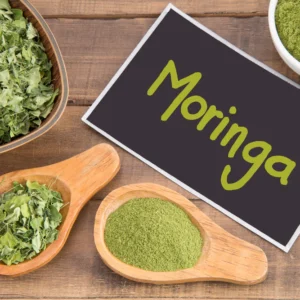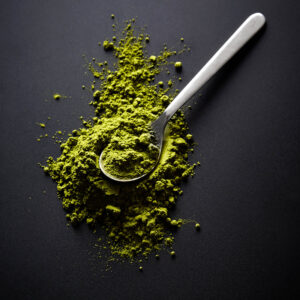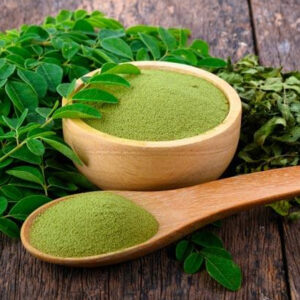In today’s fast-paced world, maintaining good health is of paramount importance. A key factor in achieving this is starting your day with the right nutrition. Moringa powder, often referred to as the “miracle tree,” has gained immense popularity as a superfood in recent years. In this article, we will explore the incredible benefits of Moringa powder and why it should be an essential part of your daily routine.
Introduction to Moringa
Moringa, scientifically known as Moringa oleifera, is a remarkable plant that has gained widespread recognition for its numerous health benefits. Often referred to as the “drumstick tree” or the “miracle tree,” Moringa has a rich history of use in traditional medicine and as a valuable source of nutrition.
This plant is native to South Asia but is now cultivated in various parts of the world due to its exceptional nutritional value and therapeutic properties. Every part of the Moringa tree, from its leaves, seeds, and pods to its roots, is utilized for its diverse range of health-promoting attributes.
In this article, we will delve deeper into the incredible nutritional content and health benefits of Moringa, exploring how it can be a valuable addition to your daily diet. From boosting immunity to aiding in weight management and promoting overall well-being, Moringa has much to offer. Join us on this journey to discover the natural goodness of Moringa and how it can help you lead a healthier life.
Table of Contents
Nutritional Powerhouse
Moringa is not just a plant; it’s a nutritional powerhouse packed with essential vitamins and minerals that can significantly enhance your overall health. Let’s explore the incredible nutritional content that makes Moringa a superfood worth incorporating into your daily diet.
Vitamins and Minerals
Moringa leaves are a rich source of essential vitamins, including Vitamin A, Vitamin C, and Vitamin E. These vitamins play a crucial role in supporting various bodily functions.
- Vitamin A: Known for its role in maintaining healthy vision, skin, and immune system.
- Vitamin C: A powerful antioxidant that boosts immunity and supports collagen production for healthy skin.
- Vitamin E: An antioxidant that helps protect cells from damage and supports skin and eye health.
In addition to vitamins, Moringa provides essential minerals such as calcium, potassium, and iron.
- Calcium: Necessary for strong bones and teeth.
- Potassium: Vital for maintaining proper heart and muscle function.
- Iron: Essential for carrying oxygen in the blood and preventing anemia.
The combination of these vitamins and minerals in Moringa makes it a nutrient-dense addition to your daily regimen. These nutrients are crucial for maintaining overall health and well-being.
Antioxidants
Moringa also boasts a high concentration of antioxidants, including quercetin, chlorogenic acid, and beta-carotene. Antioxidants are essential for combating oxidative stress in the body, which can lead to cell damage and various chronic diseases.
- Quercetin: A natural pigment found in many fruits and vegetables, quercetin has anti-inflammatory and antiviral properties.
- Chlorogenic Acid: Known for its potential to lower blood sugar levels and reduce blood pressure.
- Beta-Carotene: A precursor to Vitamin A, beta-carotene is essential for vision and immune system support.
These antioxidants help your body fight free radicals, reducing the risk of chronic illnesses and supporting your overall health.
In summary, Moringa is a nutritional powerhouse, offering a wide range of vitamins, minerals, and antioxidants that are essential for maintaining good health. By incorporating Moringa into your diet, you can easily boost your nutrient intake and enjoy the numerous benefits it has to offer.
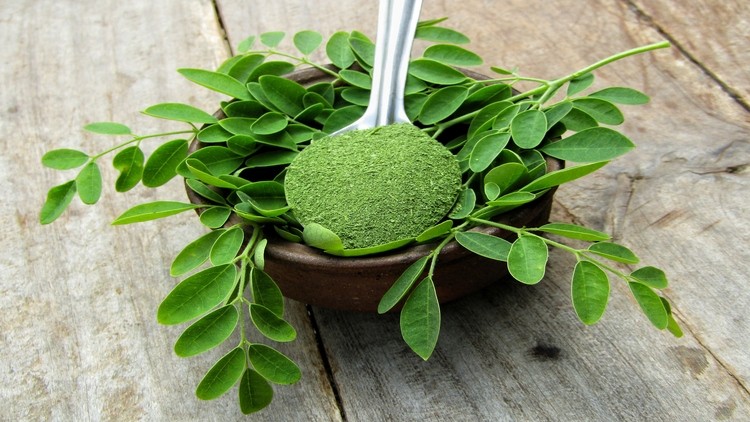
Boosting Immunity
In today’s fast-paced world, maintaining a strong and resilient immune system is essential for staying healthy and warding off illnesses. Moringa, the nutrient-rich superfood, can be a valuable ally in boosting your immunity.
Strengthening Your Immune System
Moringa is a powerhouse of essential nutrients, including vitamins and antioxidants, that work together to strengthen your immune system. Here’s how Moringa can help you stay healthy:
1. Rich in Vitamins: Moringa is packed with immune-boosting vitamins such as Vitamin C, which plays a pivotal role in enhancing your body’s defense mechanisms. Vitamin C is known for its ability to stimulate the production of white blood cells, which are essential for fighting infections.
2. Antioxidant Protection: The antioxidants in Moringa, including quercetin and chlorogenic acid, help reduce oxidative stress in the body. By neutralizing harmful free radicals, these antioxidants prevent cellular damage and support your immune response.
3. Anti-Inflammatory Effects: Chronic inflammation can weaken the immune system. Moringa’s natural anti-inflammatory properties help reduce inflammation, allowing your immune system to function optimally.
4. Nutrient Support: Moringa provides essential nutrients like Vitamin A, E, and iron, which are vital for maintaining immune health. These nutrients play a crucial role in maintaining the integrity of mucous membranes and skin, serving as the first line of defense against pathogens.
By incorporating Moringa into your daily routine, you can provide your body with the necessary tools to fend off infections and illnesses effectively. It’s a natural and holistic way to support your immune system, allowing you to stay healthy and active.
How to Include Moringa for Immunity
Adding Moringa to your diet is simple. You can enjoy its immune-boosting benefits by:
- Mixing Moringa powder into smoothies or juices.
- Sprinkling Moringa powder on salads or yogurt.
- Brewing Moringa tea for a soothing and nutritious beverage.
By making Moringa a part of your daily routine, you can give your immune system the support it needs to keep you feeling your best.
In conclusion, Moringa’s impressive array of vitamins, antioxidants, and anti-inflammatory properties make it an excellent choice for enhancing and fortifying your immune system. Consider incorporating this superfood into your daily diet to reap its immune-boosting benefits and help your body stay resilient in the face of health challenges.
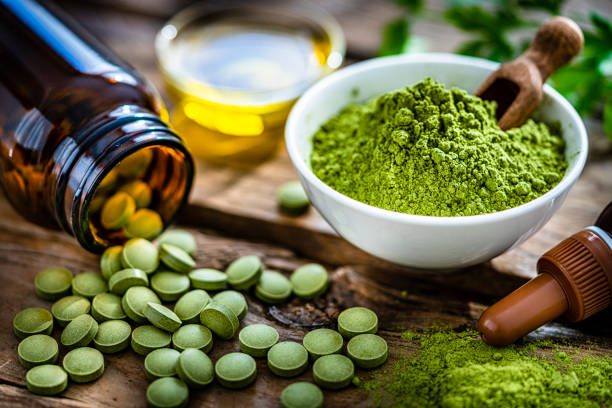
Energizing Properties
Are you looking for a natural and sustainable way to boost your energy levels without resorting to caffeine or sugary drinks? Moringa, the “miracle tree,” possesses remarkable energizing properties that can help you stay alert and active throughout the day.
Natural Energy Boost
Moringa’s energy-boosting abilities come from its rich nutrient profile, making it a valuable choice for those seeking a healthier and more sustainable source of vitality. Here’s how Moringa can revitalize your energy levels:
1. Nutrient Density: Moringa is densely packed with essential vitamins, minerals, and amino acids. These nutrients play a pivotal role in supporting overall bodily functions, including energy production.
2. Iron Content: Iron deficiency can lead to fatigue and reduced energy levels. Moringa is an excellent source of iron, which is crucial for transporting oxygen throughout your body. This helps combat fatigue and keeps you feeling refreshed.
3. B Vitamins: Moringa contains B vitamins, including B1 (thiamine), B2 (riboflavin), and B3 (niacin), which are essential for converting food into energy. These vitamins help your body efficiently utilize the energy from the food you consume.
4. Non-Jittery Energy: Unlike caffeine, which can cause jitteriness and energy crashes, Moringa provides a natural and sustained energy boost. It helps you stay focused without the side effects associated with caffeine consumption.
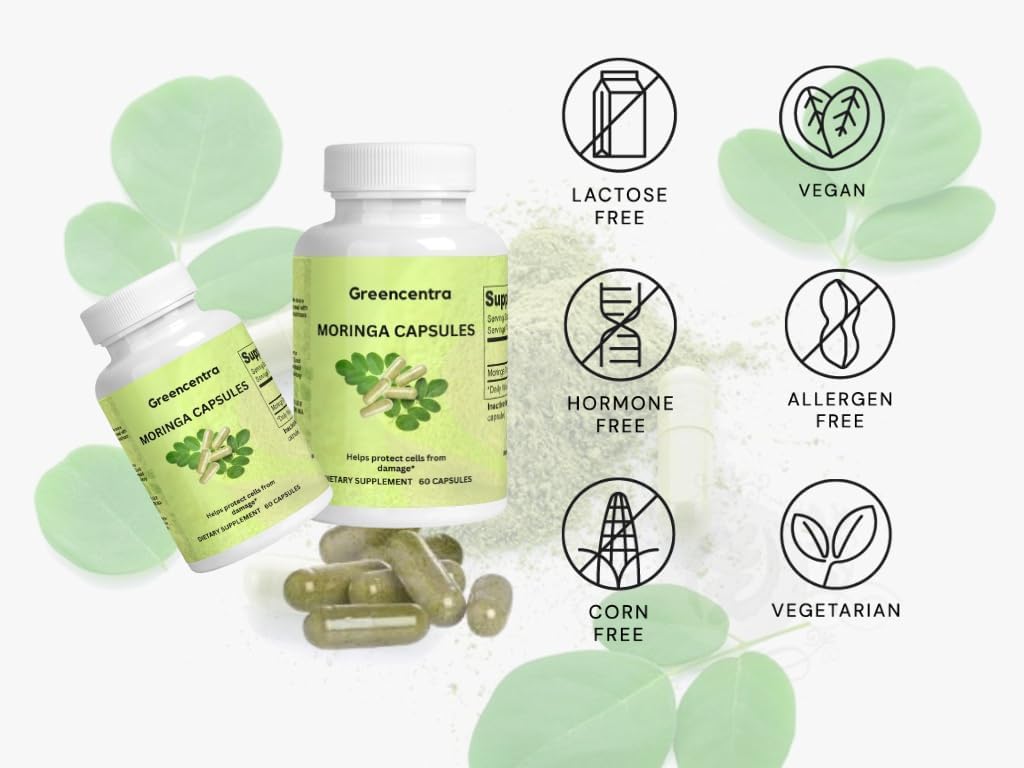
How to Incorporate Moringa for Energy
Including Moringa in your daily routine is simple and can help you maintain steady energy levels. Here are some ways to harness Moringa’s energizing properties:
- Moringa Smoothies: Add a spoonful of Moringa powder to your morning smoothie for a nutritious and energizing start to your day.
- Moringa Tea: Brew a cup of Moringa tea for a gentle energy lift and a soothing experience.
- Moringa Snacks: Experiment with Moringa-infused snacks, such as energy bars or protein balls, to stay energized on the go.
- Moringa Salads: Sprinkle Moringa powder on your salads to elevate their nutritional content and energizing potential.
By incorporating Moringa into your diet, you can enjoy a natural and sustained boost in energy levels. It’s a healthy and effective way to combat fatigue, enhance your productivity, and keep your vitality high throughout the day.
In conclusion, Moringa’s energizing properties, derived from its nutrient-rich composition, provide a natural and non-jittery energy boost. Whether you’re looking to kickstart your mornings or maintain focus during a busy day, Moringa can be your trusted companion for sustained vitality.
Weight Management
Maintaining a healthy weight is a crucial aspect of overall well-being, and Moringa, the nutrient-packed superfood, can be a valuable ally in your weight management journey. Let’s explore how incorporating Moringa into your diet can support your efforts to achieve and maintain a healthy weight.
Aiding in Weight Management
1. Low in Calories: Moringa is naturally low in calories, making it an excellent addition to a calorie-conscious diet. You can enjoy its nutritional benefits without worrying about excessive calorie intake.
2. High in Fiber: Moringa is rich in dietary fiber, which promotes a feeling of fullness and reduces hunger cravings. This can help prevent overeating and contribute to weight control.
3. Nutrient Density: Despite being low in calories, Moringa is densely packed with essential vitamins and minerals. This means you’re providing your body with vital nutrients even as you manage your calorie intake.
4. Supporting Metabolism: Moringa contains B vitamins, including B1 (thiamine) and B2 (riboflavin), which play a role in metabolism. An efficient metabolism is crucial for burning calories effectively.
5. Reducing Fat Absorption: Some studies suggest that Moringa may inhibit the absorption of excess fat in the body. This can be beneficial for those seeking weight management solutions.
How to Include Moringa for Weight Management
Incorporating Moringa into your weight management plan is simple and can be a valuable addition to a balanced diet. Here are some ways to utilize Moringa’s benefits:
- Moringa Smoothies: Blend Moringa powder into your morning smoothie to kickstart your day with a nutrient-packed, low-calorie option.
- Moringa Salad: Sprinkle Moringa powder on your salads for added flavor, nutrition, and a sense of fullness.
- Moringa Tea: Enjoy a cup of Moringa tea as a satisfying and calorie-friendly beverage.
- Moringa Capsules: If you prefer a more convenient option, Moringa is available in capsule form, allowing you to easily incorporate it into your daily routine.
By including Moringa in your diet, you can take a step toward managing your weight more effectively while providing your body with essential nutrients. Remember that weight management is a holistic journey that involves a balanced diet and regular physical activity, and Moringa can be a supportive component of that journey.
In conclusion, Moringa’s low-calorie, high-fiber, and nutrient-dense qualities make it a valuable addition to a weight management plan. By incorporating Moringa into your diet, you can support your efforts to achieve and maintain a healthy weight while enjoying the numerous health benefits this superfood has to offer.
Anti-Inflammatory Effects
Chronic inflammation is a common underlying factor in many health issues, including cardiovascular diseases, arthritis, and various chronic illnesses. Moringa, the “miracle tree,” possesses potent anti-inflammatory properties that can help combat inflammation in the body, promoting overall health and well-being.
Natural Anti-Inflammatory Benefits
1. Phytonutrients: Moringa is abundant in phytonutrients such as quercetin, chlorogenic acid, and beta-carotene. These natural compounds have been shown to reduce inflammation by inhibiting the production of inflammatory markers in the body.
2. Antioxidants: Moringa’s high antioxidant content plays a crucial role in mitigating inflammation. By neutralizing harmful free radicals, antioxidants help prevent oxidative stress, a major contributor to chronic inflammation.
3. Reducing Pain: Many individuals suffering from conditions like arthritis find relief through the consumption of Moringa. Its anti-inflammatory properties can help reduce joint pain and improve mobility.
4. Protecting Against Chronic Diseases: Chronic inflammation is a risk factor for numerous chronic diseases, including heart disease and diabetes. By incorporating Moringa into your diet, you may reduce your risk of developing these conditions.
5. Gastrointestinal Health: Inflammation in the digestive tract can lead to digestive issues. Moringa’s anti-inflammatory effects may help alleviate conditions like irritable bowel syndrome (IBS) and promote gastrointestinal health.
How to Incorporate Moringa for Anti-Inflammatory Benefits
Adding Moringa to your daily diet is a simple and natural way to harness its anti-inflammatory properties. Here are some ways to include Moringa for this purpose:
- Moringa Tea: Brew a soothing cup of Moringa tea to calm inflammation from within.
- Moringa Supplements: Consider Moringa supplements for a concentrated dose of its anti-inflammatory compounds.
- Moringa Smoothies: Blend Moringa powder into your daily smoothies for a nutritious and anti-inflammatory kick.
- Moringa Salad Dressing: Create a homemade salad dressing with Moringa powder to infuse your salads with its anti-inflammatory goodness.
By incorporating Moringa into your diet regularly, you can support your body’s natural defense against inflammation. However, remember that for severe inflammation or chronic health conditions, it’s essential to consult with a healthcare professional for a comprehensive treatment plan.
In conclusion, Moringa’s natural anti-inflammatory properties make it a valuable addition to your diet, aiding in the prevention and management of chronic inflammation-related health issues. Embrace the benefits of this superfood to promote overall well-being and reduce the risk of inflammatory diseases.
Digestive Health
Maintaining a healthy digestive system is vital for overall well-being. Poor digestion can lead to discomfort, nutrient malabsorption, and various gastrointestinal issues. Fortunately, Moringa, the nutrient-rich superfood, offers several benefits for digestive health.
Supporting Digestive Health
1. Rich in Dietary Fiber: Moringa leaves are an excellent source of dietary fiber, which aids in promoting regular bowel movements and preventing constipation. Fiber also supports a healthy gut microbiome by serving as food for beneficial gut bacteria.
2. Alleviating Digestive Issues: Moringa’s anti-inflammatory properties can help soothe the digestive tract and alleviate common issues like bloating, gas, and indigestion.
3. Nutrient Absorption: A healthy digestive system is essential for the absorption of nutrients from the foods you consume. Moringa’s nutrients, including vitamins and minerals, support overall digestive function.
4. Gut Microbiome Health: Moringa’s fiber content promotes the growth of beneficial gut bacteria, which play a significant role in maintaining digestive health and supporting the immune system.
5. Anti-Ulcer Properties: Some studies suggest that Moringa may possess anti-ulcer properties, helping protect the stomach lining from damage.
How to Incorporate Moringa for Digestive Health
Including Moringa in your daily diet can be a beneficial step toward maintaining digestive health. Here are some ways to incorporate Moringa into your diet for digestive well-being:
- Moringa Smoothies: Blend Moringa powder into your morning smoothies for a nutritious and digestive-friendly start to your day.
- Moringa Tea: Enjoy a cup of Moringa tea after meals to aid in digestion and soothe the digestive tract.
- Moringa Soups: Add Moringa leaves or powder to soups and stews to infuse them with added nutrients and digestive benefits.
- Moringa Supplements: If you prefer a more convenient option, Moringa supplements can provide a concentrated dose of its digestive-enhancing properties.
By making Moringa a part of your daily routine, you can support your digestive system’s health and function. However, if you experience severe digestive issues or persistent discomfort, it’s essential to consult with a healthcare professional for a proper diagnosis and treatment plan.
In conclusion, Moringa’s rich dietary fiber content and other nutrients make it a valuable addition to your diet for promoting digestive health. Incorporate this superfood to maintain regularity, support nutrient absorption, and enjoy a more comfortable digestive experience.
Skin and Hair Benefits
Healthy and radiant skin, as well as lustrous hair, are attributes that many people aspire to achieve. Moringa, the “miracle tree,” offers a treasure trove of natural nutrients that can enhance the health and appearance of your skin and hair. Let’s explore the numerous benefits Moringa provides in this regard.
Skin Benefits
1. Skin Hydration: Moringa oil, extracted from Moringa seeds, is an excellent natural moisturizer. It helps hydrate the skin, preventing dryness and promoting a soft, supple complexion.
2. Anti-Aging Properties: Moringa is rich in antioxidants, which combat free radicals responsible for premature aging. Regular use of Moringa can help reduce the appearance of fine lines and wrinkles.
3. Skin Elasticity: The vitamins and minerals in Moringa, such as Vitamin A and E, support collagen production, enhancing skin elasticity and firmness.
4. Acne Management: Moringa’s anti-inflammatory and antibacterial properties can help manage acne by reducing inflammation and preventing bacterial growth.
5. Skin Brightening: Moringa contains skin-brightening agents that can help fade dark spots, reduce hyperpigmentation, and give your skin a more even tone.
Hair Benefits
1. Hair Growth: Moringa is rich in nutrients that promote hair growth, including Vitamin C, Vitamin E, and iron. These nutrients improve blood circulation to the scalp, stimulating hair follicles for stronger and healthier hair.
2. Dandruff Control: Moringa’s antimicrobial properties can help combat dandruff and maintain a clean and healthy scalp.
3. Hair Strength: The amino acids in Moringa contribute to hair strength and prevent breakage, leaving your hair looking vibrant and resilient.
4. Hair Texture: Regular use of Moringa can enhance hair texture, making it smoother and more manageable.
How to Use Moringa for Skin and Hair
Incorporating Moringa into your skincare and haircare routines is easy and can yield remarkable results. Here are some ways to harness the benefits of Moringa:
For Skin:
- Moringa Oil: Apply Moringa oil topically as a moisturizer or massage oil for your face and body.
- Moringa Face Masks: Create homemade face masks by mixing Moringa powder with yogurt or honey for a nourishing treat for your skin.
For Hair:
- Moringa Hair Oil: Apply Moringa oil to your scalp and hair as a pre-shampoo treatment or leave-in conditioner.
- Moringa Hair Masks: Combine Moringa powder with a carrier oil, such as coconut oil, to create a hair mask that strengthens and revitalizes your locks.
By incorporating Moringa into your skincare and haircare routines, you can unlock its full potential and enjoy the radiant skin and healthy, lustrous hair you desire.
In conclusion, Moringa’s natural properties make it a valuable addition to your beauty regimen. Whether you seek improved skin texture, a more youthful appearance, or healthier, shinier hair, Moringa can help you achieve your beauty goals naturally.
Moringa for Athletes
Athletes and fitness enthusiasts constantly seek ways to improve their performance, endurance, and recovery. Moringa, often hailed as a superfood, offers a range of benefits that can be particularly advantageous for those with active lifestyles. Let’s explore why Moringa is gaining popularity among athletes and how it can enhance their athletic journey.
Natural Performance Enhancement
1. Increased Stamina: Moringa is rich in nutrients, including iron and B vitamins, which support the production of red blood cells and oxygen transport to muscles. This can lead to improved stamina and endurance during workouts and training sessions.
2. Muscle Recovery: The anti-inflammatory properties of Moringa can aid in reducing muscle inflammation and soreness after intense exercise, helping athletes recover more quickly.
3. Enhanced Energy Levels: Unlike caffeine, which can lead to jitters and energy crashes, Moringa provides a natural and sustained energy boost, allowing athletes to stay focused and perform at their best.
4. Nutrient Density: Moringa offers a wide array of essential nutrients, which are vital for overall health and recovery. These nutrients can help replenish the body’s reserves after strenuous physical activity.
How Athletes Can Incorporate Moringa
Athletes can easily incorporate Moringa into their daily routines to reap its performance-enhancing benefits:
- Moringa Smoothies: Blend Moringa powder into pre- or post-workout smoothies for a nutrient-packed energy boost.
- Moringa Supplements: Consider Moringa supplements for a concentrated dose of its performance-enhancing compounds.
- Moringa Snacks: Create homemade energy bars or protein balls infused with Moringa for on-the-go fuel.
- Moringa Tea: Sip on Moringa tea as a refreshing and nutritious beverage to stay energized and hydrated.
As with any supplement or dietary change, it’s essential for athletes to consult with a healthcare professional or sports nutritionist to ensure that Moringa aligns with their specific training and dietary needs.
In conclusion, Moringa’s natural properties make it a valuable addition to the diets of athletes and fitness enthusiasts. Whether you’re looking to boost endurance, support recovery, or maintain overall health, Moringa can be a beneficial ally on your athletic journey, helping you perform at your best and reach your fitness goals.
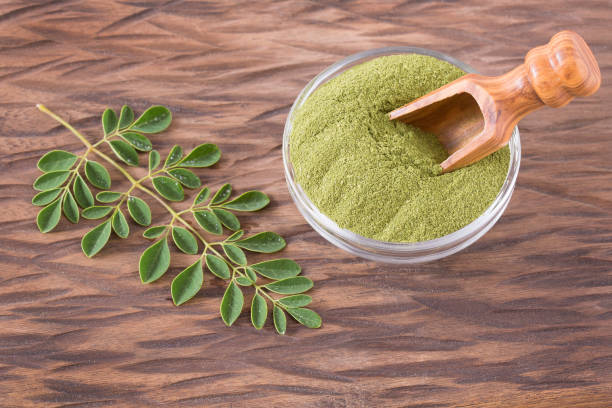
How to Incorporate Moringa Powder
Incorporating Moringa powder into your daily routine is easy and can offer a wide range of health benefits. Whether you’re looking to boost your immunity, increase energy, or enhance your overall well-being, Moringa can be a valuable addition to your diet. Here are several creative and practical ways to include Moringa powder in your meals and beverages:
1. Moringa Smoothies:
One of the most popular and convenient ways to enjoy Moringa powder is by adding it to your morning smoothies. Simply blend a teaspoon of Moringa powder with your favorite fruits, vegetables, and a liquid of your choice, such as almond milk or yogurt. This creates a nutritious and energizing drink to kickstart your day.
2. Moringa Tea:
Moringa tea is a soothing and nutritious option. Steep a teaspoon of Moringa powder in hot water, similar to how you would prepare traditional tea. You can also enhance the flavor with honey, lemon, or ginger for added zest.
3. Moringa Salad Dressing:
Elevate the nutritional value of your salads by creating a homemade Moringa salad dressing. Mix Moringa powder with olive oil, lemon juice, garlic, and your preferred seasonings. Drizzle this dressing over your salads for an extra dose of nutrients.
4. Moringa Snacks:
Get creative in the kitchen by incorporating Moringa powder into your homemade snacks. You can add it to energy bars, protein balls, or even sprinkle it on popcorn for a healthy and flavorful treat.
5. Moringa Soups and Stews:
Enhance the nutritional content of your soups and stews by stirring Moringa powder into the simmering broth. It blends seamlessly with savory dishes and provides an extra nutrient boost.
6. Moringa Oatmeal:
Start your day with a nutritious bowl of Moringa-infused oatmeal. Simply mix a teaspoon of Moringa powder into your cooked oats, along with your favorite toppings like fruits, nuts, and honey.
7. Moringa Smoothie Bowls:
For a visually appealing and nutrient-packed breakfast, prepare a Moringa smoothie bowl. Blend Moringa powder with frozen fruits and a splash of liquid, then pour it into a bowl and top with granola, seeds, and fresh fruit slices.
8. Moringa Latte:
Create a Moringa latte by mixing Moringa powder with steamed milk (dairy or plant-based) and a touch of sweetener. This provides a soothing and nutrient-rich alternative to coffee.
9. Moringa Baking:
Experiment with Moringa in your baking recipes. You can incorporate Moringa powder into muffins, pancakes, or even bread for a nutritious twist on your favorite treats.
Remember that Moringa powder has a slightly earthy taste, so it pairs well with both sweet and savory dishes. Start with small amounts and gradually increase as you become accustomed to the flavor. By incorporating Moringa into your daily meals and snacks, you can enjoy its numerous health benefits and elevate your nutritional intake effortlessly.
Side Effects and Precautions
While Moringa is generally considered safe and packed with numerous health benefits, it’s essential to be aware of potential side effects and take certain precautions, especially if you’re considering incorporating Moringa into your diet or using Moringa supplements. Here are some important considerations:
1. Allergic Reactions:
Some individuals may be sensitive or allergic to Moringa. If you are new to Moringa, start with a small amount to test your tolerance and monitor for any adverse reactions, such as skin rashes or digestive discomfort. Discontinue use if you experience any allergic symptoms.
2. Digestive Upset:
Consuming too much Moringa powder, especially on an empty stomach, can lead to digestive discomfort, including diarrhea or stomach cramps. It’s advisable to start with a small dose and gradually increase it as your body gets accustomed to Moringa.
3. Medication Interactions:
Moringa may interact with certain medications, including blood pressure medications, diabetes medications, and blood thinners. If you are taking any prescription medications, consult with your healthcare provider before adding Moringa to your diet to ensure there are no adverse interactions.
4. Pregnancy and Breastfeeding:
Pregnant or breastfeeding women should exercise caution when using Moringa supplements or consuming large amounts of Moringa. While Moringa is nutrient-dense, it’s advisable to consult with a healthcare professional before incorporating it into your diet during pregnancy or lactation.
5. Quality and Source:
Ensure that you obtain Moringa products, including powders and supplements, from reputable sources. High-quality Moringa products should be free from contaminants and pesticides. It’s best to choose organic options whenever possible.
6. Moderation:
As with any dietary supplement, moderation is key. While Moringa offers numerous health benefits, excessive consumption may lead to adverse effects. Stick to recommended serving sizes and consult with a healthcare provider if you have any concerns.
7. Children:
Moringa is generally considered safe for children when consumed in moderation as part of a balanced diet. However, it’s advisable to consult with a pediatrician before introducing Moringa to a child’s diet.
8. Monitoring:
If you have underlying health conditions, such as kidney problems or liver issues, consult with a healthcare provider before incorporating Moringa into your diet, as its high nutrient content may affect these conditions.
In summary, Moringa is a nutrient-rich superfood with numerous health benefits, but it’s essential to use it responsibly and be mindful of potential side effects and interactions. Before making significant changes to your diet or supplement regimen, especially if you have existing health concerns or take medications, it’s advisable to seek guidance from a qualified healthcare professional to ensure that Moringa is safe and appropriate for you.
Choosing the Right Moringa Powder
Selecting the right Moringa powder is crucial to ensure you receive the maximum health benefits and nutritional value. With various Moringa products available in the market, it’s essential to consider certain factors when making your choice:
1. Quality and Source:
- Opt for organic Moringa powder whenever possible to reduce the risk of pesticide residues.
- Look for Moringa products from reputable suppliers and brands that adhere to quality and safety standards.
2. Purity:
- Ensure that the Moringa powder you choose is pure and free from additives, fillers, or artificial ingredients.
- Read product labels carefully to verify the purity of the Moringa powder.
3. Color and Aroma:
- High-quality Moringa powder typically has a vibrant green color and a fresh, earthy aroma. Dull or faded colors may indicate lower quality.
4. Processing Method:
- Choose Moringa powder that is minimally processed. Air-drying and cold-pressing methods are preferable to preserve nutrients.
5. Packaging:
- Select Moringa powder that comes in airtight, light-resistant packaging to maintain its freshness and prevent exposure to moisture.
6. Certifications:
- Look for certifications such as USDA Organic or Fair Trade, which can be indicators of a high-quality product.
7. Reputation and Reviews:
- Check customer reviews and the reputation of the brand or supplier to gain insights into the product’s quality and effectiveness.
8. Price:
- While price can be an indicator of quality, it’s not the sole determinant. Avoid products that are significantly cheaper than others in the market, as they may be of lower quality.
9. Sourcing Information:
- If possible, find information about the source of the Moringa leaves used to make the powder. Moringa sourced from reputable regions is likely to be of higher quality.
10. Consult a Healthcare Professional:
- If you have specific health concerns or dietary restrictions, it’s advisable to consult with a healthcare professional or nutritionist for guidance on selecting the right Moringa powder for your needs.
Remember that the quality of Moringa powder can significantly impact its nutritional content and potential health benefits. By carefully considering these factors and doing your research, you can make an informed choice and enjoy the full advantages of this nutrient-rich superfood.
Moringa Tea and Recipes
Moringa is a versatile superfood that can be enjoyed in various forms, including as a soothing tea or incorporated into recipes to enhance their nutritional value. Let’s explore how you can prepare Moringa tea and add Moringa to some delightful recipes:
Moringa Tea:
Ingredients:
- 1 teaspoon of Moringa powder
- 1 cup of hot water
- Optional: Honey, lemon, or ginger for flavor
Instructions:
- Boil water and allow it to cool slightly.
- Add a teaspoon of Moringa powder to a cup.
- Pour the hot water over the Moringa powder.
- Allow the tea to steep for 3-5 minutes to infuse the Moringa flavor.
- Stir and add honey, lemon, or ginger if desired for extra flavor.
- Enjoy your nutritious Moringa tea!
Moringa Green Smoothie:
Ingredients:
- 1 teaspoon of Moringa powder
- 1 ripe banana
- 1 cup of spinach or kale leaves
- 1/2 cup of Greek yogurt or a dairy-free alternative
- 1/2 cup of almond milk or any preferred liquid
- 1 tablespoon of honey or maple syrup (optional for sweetness)
- Ice cubes (optional)
Instructions:
- In a blender, combine the banana, spinach or kale, Greek yogurt, almond milk, and Moringa powder.
- Blend until smooth, adding ice cubes if you prefer a colder smoothie.
- Taste and add honey or maple syrup for sweetness if desired.
- Pour into a glass and enjoy your Moringa green smoothie packed with nutrients.
Moringa Energy Balls:
Ingredients:
- 1 cup of rolled oats
- 1/2 cup of almond or peanut butter
- 1/2 cup of honey or maple syrup
- 1/4 cup of Moringa powder
- 1/4 cup of dried fruits (such as raisins or cranberries)
- 1/4 cup of chopped nuts (such as almonds or cashews)
- 1/4 cup of shredded coconut
Instructions:
- In a mixing bowl, combine rolled oats, almond or peanut butter, honey or maple syrup, and Moringa powder.
- Add dried fruits, chopped nuts, and shredded coconut to the mixture.
- Stir until all ingredients are well combined.
- Roll the mixture into small balls and place them on a parchment-lined tray.
- Refrigerate for at least 30 minutes to set.
- Enjoy these Moringa energy balls as a nutritious snack.
These are just a few ways to incorporate Moringa into your daily diet. Feel free to get creative and experiment with Moringa in various recipes, such as soups, salads, and even baked goods, to enjoy its health benefits and unique flavor.
Conclusion: Your Path to a Healthier Morning
Incorporating Moringa powder into your daily routine is a simple yet effective way to kickstart your mornings with a burst of nutrition and energy. Embrace the numerous health benefits this superfood offers and take a proactive step toward a healthier lifestyle.
Source to Get Organic Moringa Leaf Powder Capsules
FAQs
- Is Moringa powder suitable for children?
- While it is generally safe, it’s best to consult a pediatrician before giving Moringa to children.
- Can Moringa powder replace my multivitamin?
- Moringa is a natural supplement, but it’s not a substitute for a well-balanced diet and multivitamins.
- Are there any restrictions on the daily intake of Moringa powder?
- It’s advisable to consume Moringa powder in moderation, and consulting a healthcare professional is recommended.
- Can I take Moringa powder if I have allergies?
- If you have known allergies, consult your doctor before adding Moringa to your diet.
- Where can I buy high-quality Moringa powder?
- You can find reputable brands online or in health food stores; ensure the product is certified organic for quality assurance.
Fuel your mornings with the goodness of Moringa powder and embark on a journey towards a healthier, more vibrant you. Get started today and experience the positive changes it can bring to your life.
